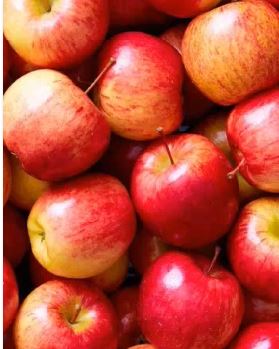
Long viewed as an everyday snack, apples are now recognized by researchers for their powerful role in disease prevention. Modern studies suggest that regular apple consumption can help lower the risk of cancer, cardiovascular issues, and chronic inflammation, proving that this humble fruit is anything but ordinary.
Apples: A Natural Shield for the Heart
The heart thrives on consistency and protection, and apples offer just that. Rich in soluble fiber—especially pectin—they help regulate cholesterol levels by lowering LDL (“bad” cholesterol) while maintaining HDL (“good” cholesterol). This balance supports healthy blood circulation and reduces the risk of atherosclerosis. Apples are also packed with flavonoids like quercetin, a potent antioxidant that reduces inflammation, improves artery elasticity, and helps stabilize blood pressure and heart rhythm. Studies show that people who eat apples regularly experience a significantly lower risk of developing heart disease, regardless of age or lifestyle.
A Simple Ally in Cancer Prevention
Apples also stand out as a potential cancer-fighting food. Their skin, often peeled away, contains high levels of polyphenols—bioactive compounds that inhibit the growth of cancer cells. These natural substances promote cell renewal, slow tumor development, and even block the formation of blood vessels that feed tumors. Research links frequent apple consumption with reduced risks of colorectal, lung, and breast cancers. While not a replacement for medical treatment, apples can help strengthen the body’s natural defenses and support long-term wellness.
A Small Habit with Big Results
Incorporating an apple into your daily routine requires no effort but may offer profound benefits. Whether eaten raw, baked, or blended into salads or applesauce, apples retain their nutritional power—especially when the skin is left intact. This simple habit provides lasting protection for the heart and immune system. Behind its unassuming exterior, the apple holds extraordinary potential as a cornerstone of preventive nutrition. So next time you shop, don’t overlook this everyday fruit—it might just be one of nature’s most powerful tools for lifelong health.